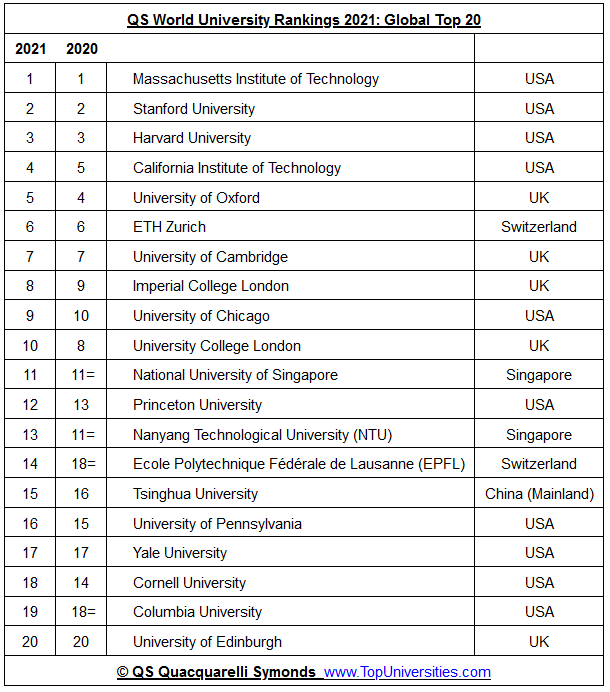QS Quacquarelli Symonds, global higher education analysts, released the seventeenth edition of the QS World University Rankings - the world's most-consulted, most-covered source of comparative information about university performance.[1] 26 Asian universities place among the global top-100 - the highest number ever.
- Massachusetts Institute of Technology is named the world's best university for a record-breaking ninth consecutive year;
- The top three institutions remain American: MIT is followed by Stanford University (2nd) and Harvard University (3rd);
- Britain's top institution is the University of Oxford, which falls to fifth. Its compatriot competitor, the University of Cambridge, remains 7th;
- 112 of America's 153 ranked universities fall, with only 34 recording improvements. This is primarily due to collective relative decline in QS's measures of academic standing and research impact;
- Continental Europe's best university is ETH Zurich (6th no-change);
- Asia's top university is the National University of Singapore (11th);
- China's Tsinghua University reaches a new all-time high (15th);
- Latin America's leader is the Universidad de Buenos Aires (66th, up 8 places). Universidad Nacional Autónoma de México (100th) becomes the first Mexican university ever to achieve a top-100 place;
- Universities in Russia and Malaysia continue to rise: Lomonosov Moscow State University (74th) and Universiti Malaya (59th) reach record highs.
Ben Sowter, QS Director of Research, said: "The American higher education hegemony continues to diminish in the face of increasing competitiveness across the world: a competitiveness driven by strategic funding, internationalization efforts, and strong links between education and industry."

Methodological details can be found here. To view the full rankings: www.TopUniversities.com
[1] 'Most-consulted according to data from independent monitoring platforms, including Google Analytics, SimilarWeb, Meltwater, and Alexa.










